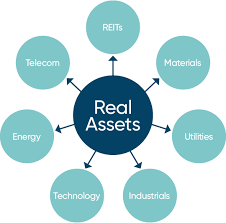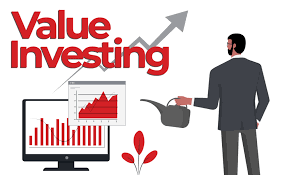When Warren Buffett, one of the world’s most successful investors, wagered $1 million that a simple index fund would outperform a collection of hedge funds over ten years, many skeptics raised their eyebrows.
A decade later, Buffett won the bet handily, proving a crucial point: index funds for beginners and experienced investors alike can be a powerful tool for building wealth. Index funds have revolutionized investing by making it accessible to everyone, not just Wall Street experts.
They offer a simple, low-cost way to invest in the stock market while spreading your risk across hundreds or thousands of companies. Whether you’re just starting with $100 or have substantial savings to invest, understanding index funds is crucial for your financial future.
In this comprehensive guide, we’ll explore everything you need to know about index funds for beginners, following the wisdom of Warren Buffett and other investment experts.
From understanding the basics to building your portfolio, we’ll cover all the essential steps to help you start your investment journey with confidence.
Skale Money Key Takeaways
- Index funds provide diversified investment exposure with lower risk compared to individual stocks
- Management fees are typically much lower than actively managed funds, allowing you to keep more of your returns
- Index funds are suitable for investors of all levels, from beginners with small amounts to experienced investors with large portfolios
- Warren Buffett strongly endorses index funds as the best investment choice for most people
- Index fund investing requires minimal time and expertise, making it perfect for busy individuals
- Historical data shows that index funds consistently outperform most actively managed funds over the long term
Table of Contents
1. Understanding Index Funds: The Building Blocks
The foundation of successful investing starts with understanding what you’re investing in. An index fund is a type of investment that tracks a specific market index, such as the S&P 500, which includes 500 of America’s largest companies.
Think of it as buying a slice of the entire market rather than trying to pick individual winning stocks. Many new investors struggle with complex investment terms and strategies, but index funds for beginners offer a straightforward approach.
When you invest in an index fund, you’re essentially buying small portions of many different companies at once, automatically diversifying your investment.
Key Concepts to Understand:
- Passive Management: Index funds simply track an index rather than trying to beat the market
- Diversification: Your money is spread across many different companies
- Low Costs: Because they’re passively managed, fees are typically much lower
- Transparency: You always know exactly what you own
- Liquidity: You can usually buy or sell your index fund shares any trading day
Table: Index Funds vs. Active Funds Comparison
| Feature | Index Funds | Actively Managed Funds |
| Management Style | Passive – tracks an index | Active – tries to beat the market |
| Annual Fees | Usually 0.03% to 0.20% | Often 0.50% to 1.50% or higher |
| Trading Frequency | Low – minimal trading | High – frequent trading |
| Tax Efficiency | More tax-efficient | Less tax-efficient |
| Performance Predictability | Matches market returns | Variable and unpredictable |
2. Warren Buffett’s Philosophy on Index Funds
Warren Buffett’s endorsement of index funds isn’t just casual advice – it’s backed by decades of market observation and practical experience. In his 2013 letter to Berkshire Hathaway shareholders, Buffett revealed that he had instructed the trustee of his estate to invest 90% of his wife’s inheritance in a low-cost S&P 500 index fund.
“By periodically investing in an index fund, the know-nothing investor can actually outperform most investment professionals,” Buffett has famously stated. This powerful endorsement comes from understanding that most active managers can’t consistently beat the market after accounting for fees and trading costs.
Key Lessons from Buffett:
- Simplicity beats complexity in investing
- Low costs are crucial for long-term success
- Time in the market beats timing the market
- Emotional discipline is essential
- The power of compound interest works best with index funds
The Famous Bet: In 2007, Buffett made a $1 million wager that an S&P 500 index fund would outperform a hand-picked portfolio of hedge funds over ten years. The results were striking:
- S&P 500 Index Fund Return: 125.8%
- Hedge Fund Portfolio Return: 36.3%
3. Getting Started: Your First Index Fund Investment
Starting your investment journey with index funds doesn’t have to be complicated. The key is to begin with a clear plan and understand the basic steps involved. For beginners, index funds offer an ideal starting point because they provide broad market exposure with minimal complexity.
Getting started requires just a few key decisions and actions. The process has become increasingly accessible, with many platforms allowing you to begin investing with just a few dollars.
Essential Beginner’s Checklist:
□ Choose a reputable brokerage account (Vanguard, Fidelity, Charles Schwab)
□ Research low-cost index fund options
□ Understand and compare expense ratios
□ Set up automatic investment plans
□ Review the fund prospectus
□ Start with a small, manageable amount
□ Consider tax-advantaged accounts (IRA, 401(k))
Step-by-Step Guide:
- Open a brokerage account
- Fund your account
- Research index fund options
- Place your first order
- Set up regular contributions
4. Choosing the Right Index Funds
Selecting the right index funds as a beginner doesn’t have to be overwhelming. The key is to focus on broad-market funds with low costs and solid track records. Remember that index funds for beginners should provide broad diversification while keeping things simple.
When evaluating index funds, start by looking at the expense ratio – this is the annual fee you’ll pay for holding the fund. A difference of even 0.1% can significantly impact your returns over time. Most major brokerages offer excellent low-cost options that are perfect for beginners.
Table: Top Beginner-Friendly Index Funds (2024)
| Fund Name | Index Tracked | Expense Ratio | Minimum Investment |
| Vanguard Total Stock Market Index Fund | Total US Market | 0.03% | $3,000 |
| Fidelity ZERO Total Market Index Fund | Total US Market | 0.00% | $0 |
| Schwab S&P 500 Index Fund | S&P 500 | 0.02% | $0 |
| Vanguard Total International Stock Index | Global ex-US | 0.11% | $3,000 |
Key Selection Criteria:
- Expense ratio under 0.20%
- No sales loads or transaction fees
- Broad market coverage
- High trading volume
- Track record of closely following its index
- Sufficient asset base (over $1 billion)
5. Building Your Portfolio Strategy
Creating a solid portfolio strategy is crucial for long-term success with index funds. The goal is to build a diversified portfolio that matches your risk tolerance and investment timeline. For beginners, index funds make this process much simpler than trying to pick individual stocks.
Your portfolio strategy should reflect your personal financial situation, goals, and risk tolerance. A common approach is to start with a core holding in a broad market index fund and then add complementary funds as your knowledge and portfolio grow.
Basic Portfolio Models:
- Conservative (Age 60+)
- 70% Bonds Index Funds
- 30% Stock Index Funds
- Moderate (Age 40-60)
- 40% Bonds Index Funds
- 60% Stock Index Funds
- Aggressive (Under 40)
- 10% Bonds Index Funds
- 90% Stock Index Funds
Key Strategy Components:
- Regular monthly investments
- Automatic rebalancing
- Long-term perspective
- Risk-appropriate asset allocation
- Geographic diversification
6. Common Mistakes to Avoid
Even with index funds being relatively straightforward investments, beginners often make several common mistakes that can impact their returns. Understanding and avoiding these pitfalls will help you stay on track with your investment goals.
The beauty of index funds is their simplicity, but many investors overcomplicate things or let emotions drive their decisions. Here are the key mistakes to avoid and how to prevent them.
Major Pitfalls to Watch For:
- Trying to time the market
- Overreacting to market volatility
- Choosing funds with high expense ratios
- Over-diversifying with too many funds
- Checking performance too frequently
- Selling during market downturns
- Chasing past performance
Pro Tips to Stay on Track:
- Set up automatic investments
- Review your portfolio quarterly, not daily
- Stick to your asset allocation
- Focus on low-cost funds
- Keep it simple with 2-3 core funds
7. Tax Implications and Advantages
Understanding the tax implications of index fund investing can help you keep more of your returns. Index funds are generally more tax-efficient than actively managed funds due to their lower turnover rate, but it’s still important to understand how they’re taxed.
The tax efficiency of index funds comes from their passive management style, which results in fewer taxable events. However, where you hold your index funds can make a significant difference in your tax liability.
Tax Considerations:
- Capital gains taxes on profits
- Dividend taxation
- Tax-loss harvesting opportunities
- Account type implications
- Required minimum distributions
Tax-Efficient Account Placement:
| Account Type | Best For |
| Traditional IRA/401(k) | Bond index funds |
| Roth IRA | Stock index funds with growth potential |
| Taxable Account | Tax-efficient broad market funds |
8. Advanced Index Fund Strategies
While index funds for beginners should start simple, understanding more advanced strategies can help you optimize your portfolio as your experience grows. These strategies can help you fine-tune your investments without compromising the core benefits of index investing.
Advanced strategies should only be implemented once you’re comfortable with the basics and understand the underlying principles of index investing. These approaches can help optimize returns while maintaining the low-cost, passive nature of index investing.
Advanced Techniques:
- Tax-loss harvesting
- Factor investing
- Core-satellite strategy
- Geographic tilting
- Sector rotation
- Risk parity approaches
Implementation Guidelines:
- Start with core positions
- Add complexity gradually
- Monitor performance impact
- Maintain cost efficiency
- Regular rebalancing
Conclusion
Index funds have revolutionized investing by making it accessible to everyone, just as Warren Buffett has long advocated. As we’ve explored throughout this guide, index funds for beginners offer a powerful combination of diversification, low costs, and simplicity that can lead to successful long-term investing.
Remember that successful investing is not about finding the next hot stock or timing the market perfectly. It’s about consistently investing in low-cost index funds, staying disciplined during market volatility, and letting the power of compound interest work in your favor over time.
Take action today by opening an account with a reputable broker and starting your index fund investment journey. Your future self will thank you for making this wise financial decision.
FAQ Section
What is the minimum amount needed to start investing in index funds?
Many index funds now have no minimum investment requirement. Some brokers like Fidelity and Schwab offer index funds with $0 minimums, while others may require $1,000 or more.
How often should I check my index fund performance?
Quarterly reviews are typically sufficient. Checking too frequently can lead to emotional decision-making and unnecessary trading.
Can I lose all my money in index funds?
While index funds can decline in value during market downturns, losing everything is extremely unlikely due to their broad diversification across many companies.
Should I choose multiple index funds or just one?
Starting with one broad-market index fund is perfectly fine for beginners. As your portfolio grows, you might add 2-3 additional funds for further diversification.
What’s the difference between ETF and mutual fund index funds?
Both track indexes, but ETFs trade like stocks throughout the day, while mutual funds trade once daily. ETFs often have lower investment minimums and can be more tax-efficient.
How do I know which index fund is best for me?
Look for funds with low expense ratios (under 0.20%), broad market coverage, and no sales loads. Consider your investment goals and risk tolerance when choosing between stock and bond index funds.
When should I sell my index fund investments?
Index funds are best suited for long-term investing. Consider selling only when you need the money, are rebalancing your portfolio, or have reached your investment goals.
Can I invest in index funds through my retirement account?
Yes, most 401(k)s and IRAs offer index fund options. This can be an excellent way to invest tax-efficiently for retirement.
Author: Cosmas Mwirigi
Cosmas Mwirigi is an established freelance writer with over five years of experience and the founder of Skalemoney.com. Cosmas Mwirigi has been published on PV-Magazine, Slidebean, Bridge Global, Casinos.com, Gambling.com, and Reverbico among many other websites.
Cosmas Mwirigi is an expert writer in iGaming, B2B, SaaS, Finance, digital marketing and Solar renewable energy. To contact him for his services, connect with him on his LinkedIn
![]()




